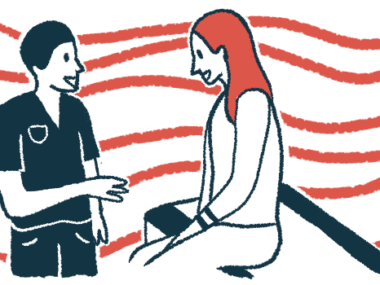Facing the ‘what-ifs’ of PNH complications
I'm trying to be proactive without living in fear of what could happen
Written by |

Living with paroxysmal nocturnal hemoglobinuria (PNH) isn’t just about managing what’s happening today; it’s also about facing what could happen tomorrow.
As much as I try to live in the moment, I’d be lying if I said the potential complications of PNH don’t cross my mind. The truth is, when you live with a rare blood disorder that can affect so many parts of your body, every ache or change can spark a wave of worry. But over time, I’ve learned that awareness doesn’t have to mean fear — it can mean empowerment.
When I was diagnosed with PNH back in 2017, I had already experienced one of its most serious complications: a blood clot in my lungs. It was a terrifying time. I remember struggling to breathe, not knowing what was happening, and then hearing that I had a pulmonary embolism caused by my PNH.
That moment changed everything for me. I started on lifelong blood clotting medication, and while it was hard to accept at first, I’ve come to see it as a crucial part of my protection. It’s my daily reminder of how unpredictable this disease can be — and how far I’ve come since those early days.
My hematologist explained that PNH increases the risk of blood clots, kidney problems, and even bone marrow failure. Hearing that list of potential complications was overwhelming, but it also made me realize how important it is to stay proactive. Now, if I feel leg pain, chest discomfort, or unexplained fatigue, I don’t hesitate to call my doctor. It’s not about fear — it’s about staying one step ahead. The Aplastic Anemia and MDS International Foundation offers great resources that have helped me better understand these risks and how to manage them.
Emotionally, it’s a balancing act. Some days, I feel strong and grateful to be stable on my medication. Other days, I can’t help but think about what could happen next. I’m a mom, daughter, wife, sister, friend, and more, and my loved ones are my reason to keep pushing through the tough moments. They’ve seen me at my weakest, but they’ve also seen my resilience. When I talk to them about PNH and the complications I face with symptoms, I try to focus on the positives: that treatment options are improving, that I’m monitored closely, and that I’m not facing this alone.
Connecting with others through the PNH Global Alliance has also made a huge difference. Hearing other people’s experiences reminds me that while PNH comes with challenges, it also comes with a powerful community that understands.
Living with PNH means accepting uncertainty, but it doesn’t mean living in fear. Every lab result, every appointment, and every dose of my medication is a step toward protecting my future. I’ve learned that the “what-ifs” don’t define me; they simply remind me to be vigilant and grateful.
I’m living proof that even after facing serious complications, life with PNH can still be full of hope, strength, and meaning. The road isn’t always easy, but I’m walking it with courage — and that’s something no disease can take away.
Note: PNH News is strictly a news and information website about the disease. It does not provide medical advice, diagnosis, or treatment. This content is not intended to be a substitute for professional medical advice, diagnosis, or treatment. Always seek the advice of your physician or other qualified health provider with any questions you may have regarding a medical condition. Never disregard professional medical advice or delay in seeking it because of something you have read on this website. The opinions expressed in this column are not those of PNH News or its parent company, Bionews, and are intended to spark discussion about issues pertaining to paroxysmal nocturnal hemoglobinuria.






Leave a comment
Fill in the required fields to post. Your email address will not be published.